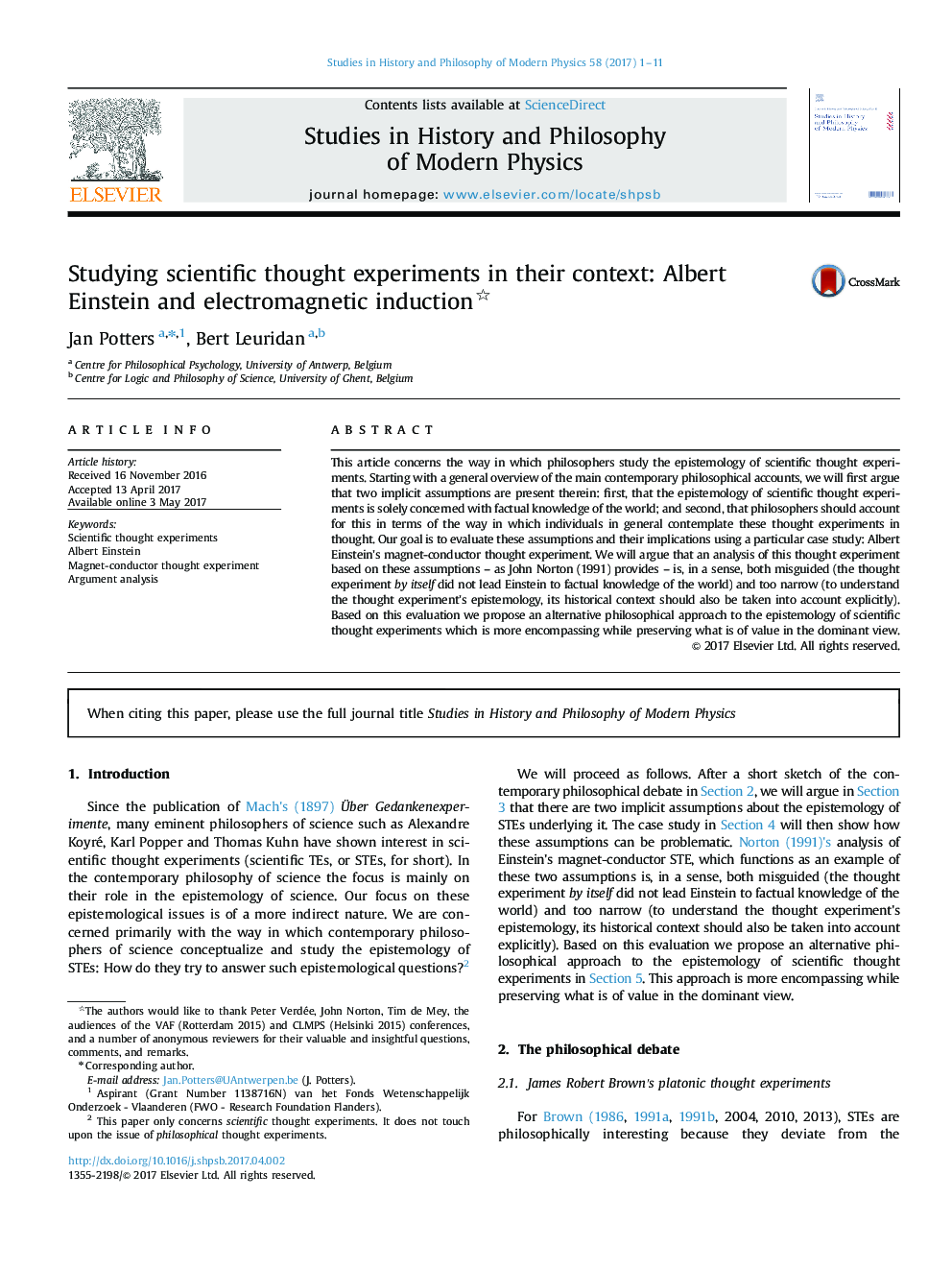| Article ID | Journal | Published Year | Pages | File Type |
|---|---|---|---|---|
| 5130457 | Studies in History and Philosophy of Science Part B: Studies in History and Philosophy of Modern Physics | 2017 | 11 Pages |
â¢Thought experiments are often assumed to concern factual knowledge.â¢Einstein׳s magnet-conductor thought experiment does not fit this philosophical frame.â¢It rather contributed to a shift in the epistemological standards of physics.â¢An alternative more encompassing frame is proposed to study their epistemology.
This article concerns the way in which philosophers study the epistemology of scientific thought experiments. Starting with a general overview of the main contemporary philosophical accounts, we will first argue that two implicit assumptions are present therein: first, that the epistemology of scientific thought experiments is solely concerned with factual knowledge of the world; and second, that philosophers should account for this in terms of the way in which individuals in general contemplate these thought experiments in thought. Our goal is to evaluate these assumptions and their implications using a particular case study: Albert Einstein׳s magnet-conductor thought experiment. We will argue that an analysis of this thought experiment based on these assumptions - as John Norton (1991) provides - is, in a sense, both misguided (the thought experiment by itself did not lead Einstein to factual knowledge of the world) and too narrow (to understand the thought experiment׳s epistemology, its historical context should also be taken into account explicitly). Based on this evaluation we propose an alternative philosophical approach to the epistemology of scientific thought experiments which is more encompassing while preserving what is of value in the dominant view.
